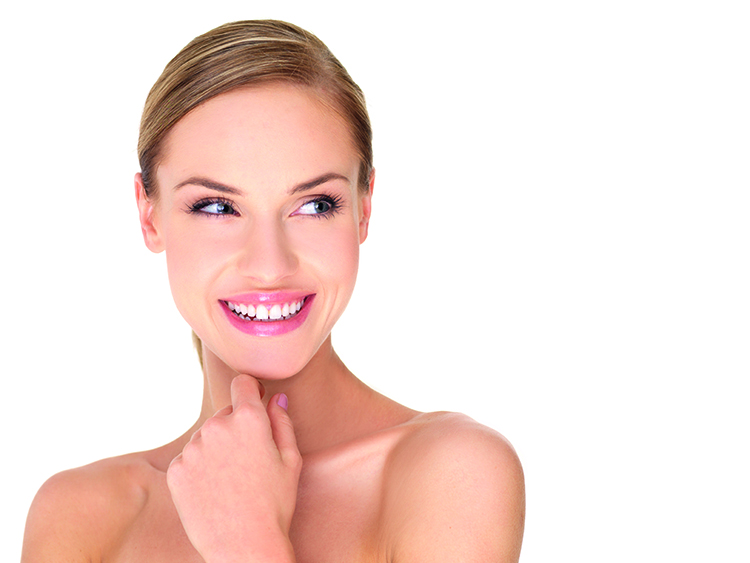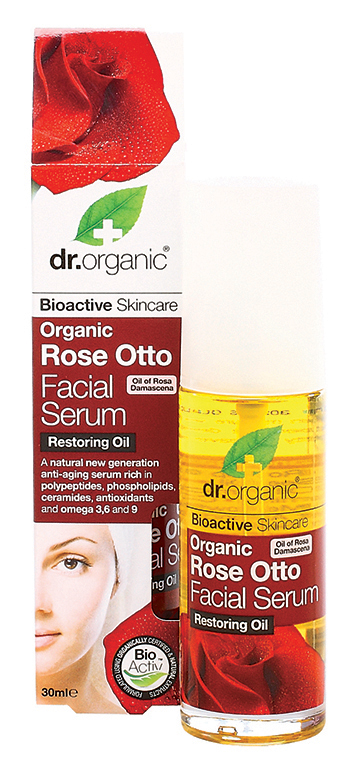Forever Young
In Advice
Follow this topic
Bookmark
Record learning outcomes
There are hundreds of anti-ageing products out there that promise to keep skin looking youthful, but it's important that customers know which ones are best for their specific skin type, life stage and ageing concerns

How skin ages
€The rate and way in which your skin ages will depend on your skin type €“ Caucasian skin ages faster than black or Asian skin,€ says consultant dermatologist at the British Skin Foundation, Dr Anjali Mahto. However, in general you can expect to see the following changes with each decade:
20s: You'll see the first faint lines on your forehead and around the eyes. You may see the first signs of sun damage as sun spots.
30s: You'll start to notice deeper lines on your forehead and around the eyes and the beginnings of skin sagging. There is a gradual decline in collagen and elastin production from your 30s onwards, causing sagging, wrinkles and loss of firmness.
40s: Lines and wrinkles start to deepen and sagging is more obvious. Sun damage, in the form of uneven pigmentation, is more noticeable.
50s: €The effect of the menopause has the biggest impact on skin ageing, thanks to lack of oestrogen. This results in drier skin, so wrinkles appear more pronounced,€ says Dr Mahto. Skin also becomes thinner.
60 plus: The effect of post-menopause continues, as skin becomes more wrinkled and sags further. As you age, you lose the layer of fat under the skin's surface, which allows muscles and sinews to show through as vertical lines.
SKIN AGERS EXPLAINED
The following factors are key culprits when it comes to premature skin ageing:
Sunlight
Around 80-90% of premature ageing signs are due to sun exposure. €Exposure to sun induces the generation of reactive oxygen species (ROS), one of the earliest measurable responses to UV rays. In the dermis and epidermis, ROS cause the activation of enzymes that degrade collagen and other proteins, impairing the integrity of the dermis. UV exposure also disrupts ongoing collagen synthesis, leading to collagen loss,€ explains cosmetic scientist Lorraine Dallmeier at Formula Botanica.
Sun exposure also results in uneven pigmentation, wrinkles and loss of firmness.
Smoking
€Smoking is the second most important cause of premature ageing,€ says Dr Susan Mayou, consultant dermatologist at the Cadogan Clinic. It reduces blood flow to skin, depriving it of oxygen and nutrients. It also dehydrates skin and stimulates production of an enzyme that breaks down collagen, while smoke-induced squinting accentuates lines around eyes.
Pollution
Several studies have linked facial wrinkles with air pollution, which also accelerates the appearance of fine lines and age spots. Air pollution contains nitrogen dioxide, which is shown to increase age spots.
Alcohol
Drinking alcohol causes dehydration, as well as depriving skin cells of vital nutrients and vitamins.
Poor diet
Studies have shown that a diet high in sugar and high-GI carbohydrates causes inflammation in the body, which speeds up skin ageing. A low-fat diet isn't helpful either, as it dries out skin cells. Eating 'good' fats such as nuts, avocados and oily fish will help plump up skin.
Harsh skincare
While it's important to have a regular skincare routine, over-zealous cleansing can cause premature ageing. Cleansing too often or using harsh, abrasive products, such as gritty exfoliators, can damage the skin's protective barrier.
ANTI-AGEING SKINCARE PRODUCTS EXPLAINED
Dr Mayou says: €You can reverse damage already done by using a retinol cream at night, while further skin damage can be prevented by using an antioxidant serum underneath sunscreen every day. A moisturiser on top will prevent dryness and help plump up the skin.€
Cleansers
Hot cloth cleansers and balms gently exfoliate while they cleanse. These are good for skin of all ages and especially for dry and sensitive skin as they hydrate too. They usually contain a blend of natural plant-based ingredients.
Cleansing oil is great for mature skin that is prone to dryness, as it cleanses while rehydrating skin. These formulas include natural oils such as argan and coconut oil.
Facial washes that are massaged in and rinsed off give a gentle exfoliating action to help remove dead skin cells and reveal younger-looking skin. Advise customers to look for one with antioxidant vitamins to rejuvenate skin. Cream cleanser that is massaged in and then wiped off with cotton wool or tissue is ideal for dry and mature skin. Some formulas include antipollution ingredients, such as moringa seed, and soothing shea butter to soften and hydrate.
Serums
 Any customer who wants anti-ageing results should be using a serum under their day cream or sunscreen; they can improve texture, brighten skin and smooth lines. There are serums designed to tackle hyperpigmentation, sun damage, wrinkles, dryness and dull skin. They are super-concentrated with active ingredients including antioxidants, vitamins, peptides, hydrators and exfoliators. Dr. Organic Rose Otto Facial Serum (RRP £13.99), for example, is formulated with organic rose otto, rosehip, argan, sweet almond, passionflower seed, sunflower seed, cotton seed, rice bran, meadowfoam seed, jojoba and arnica oils, soya bean, calendula and vitamins C and E, plus geranium and clove essential oils. The light textured facial oil absorbs quickly into the epidermal cell matrix to instantly lock in moisture and permeates deeply, helping to renew elasticity and restore skin integrity, while the nourishing and balancing ingredients guard against fine lines and wrinkles. It helps lock in extra hydration and leaves skin smooth and supple.
Any customer who wants anti-ageing results should be using a serum under their day cream or sunscreen; they can improve texture, brighten skin and smooth lines. There are serums designed to tackle hyperpigmentation, sun damage, wrinkles, dryness and dull skin. They are super-concentrated with active ingredients including antioxidants, vitamins, peptides, hydrators and exfoliators. Dr. Organic Rose Otto Facial Serum (RRP £13.99), for example, is formulated with organic rose otto, rosehip, argan, sweet almond, passionflower seed, sunflower seed, cotton seed, rice bran, meadowfoam seed, jojoba and arnica oils, soya bean, calendula and vitamins C and E, plus geranium and clove essential oils. The light textured facial oil absorbs quickly into the epidermal cell matrix to instantly lock in moisture and permeates deeply, helping to renew elasticity and restore skin integrity, while the nourishing and balancing ingredients guard against fine lines and wrinkles. It helps lock in extra hydration and leaves skin smooth and supple.
Exfoliators
Regular exfoliation encourages faster cell turnover, leading to younger looking skin, so recommend this to all customers. There are two types: physical exfoliators contain tiny granules to buff away dead cells. Those with sensitive skin should avoid these. Meanwhile, chemical exfoliators contain AHAs or beta hydroxy acids to dissolve dead skin cells and don't require any scrubbing. These are ideal for mature skin.
Day creams
The first thing customers should look for in a day cream is sun protection, ideally giving both UVA and UVB protection and containing at least SPF20. This applies for all ages and skin types as it's the main defence against future ageing.
Antioxidant ingredients, such as vitamins C and E, plant and fruit extracts, help reduce cellular ageing and preserve elasticity. Super hydrator hyaluronic acid gives plumper skin, while pro-vitamins B3 and B5 stimulate collagen production and repair damaged cells.
Night creams
€Retinol and retinoids are still the best and most proven of all anti-ageing ingredients and are hard to beat,€ says Dr Mayou. This vitamin A derivative helps reduce fine lines and wrinkles. Best used at night, as UV light breaks down retinoids, the latest formulations are less irritating to skin than they once were. Retinol products are ideal for women aged 40+ or those with clear signs of ageing. For younger customers, recommend night creams rich in antioxidants, such as green tea and vitamin E, plus moisturising ingredients like shea butter to nourish skin.
Eye creams
The skin around the eyes is thinner and more delicate. Eyelid skin also tends to be drier and more susceptible to wrinkles. An anti-ageing eye cream may help improve or prevent wrinkles by increasing hydration and protecting against UV light and pollutants. Ingredients to look for include: vitamin C to protect against free radicals and boost collagen production; caffeine and calendula to help reduce puffiness; and peptides to reduce inflammation and firm up skin.
Skin boosters
Supplements can boost skin from the inside. Look for ingredients including: collagen to improve skin's support system; vitamins C and E to protect against free radicals; biotin to improve elasticity; and omega oils to help smooth lines. Essences are the latest Asian skincare hero products. These featherweight hydrating liquids are designed for use after cleansing and before moisturising in a daily skincare routine. If using a serum too, essences should be applied beforehand. They are good for all ages and help brighten a dull complexion.
Face masks
Masks are great for giving skin an occasional super-boost. Pick a hydrating one for dry, mature skin, a tightening mud-based one to firm up skin, or a brightening mask to give skin a healthy, youthful-looking glow.
Anti-ageing skincare trends
€Looking to the future, scientists are developing products that use your DNA to customise products to suit your skin's needs,€ says Dr Mayou. A new skincare range from Swedish company Allel launches in September, which matches your DNA (you send off a sample) with tailor-made skin products to suit your ageing profile. Probiotic ingredients in skincare products is a hot new trend, as they are believed to counteract pollution and the effects of sun exposure.
Anti-pollution products are also big news and contain ingredients such as vitamin B3, to block effects of pollutants, and antioxidant vitamins.
